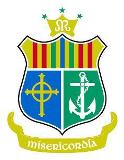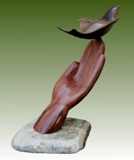|
SANCTA
MARIA COLLEGE Louisburgh Co. Mayo |
|
|
Involvement Suggestions for Parents:
Check if the students have set-up timetables.This involves the following: Check if they are using the checkmark technique.Students should keep track of how often they get distracted when doing homework/study. Each time they divert their attention from their work, they give themselves a checkmark. At the end of their study session, they should count their checkmarks, and make a goal to reduce the number of checkmarks in the next study session. Do not over analyse their exam performance while the exams are in progress.
|
|---|
Creating a Study EnvironmentCreate a work atmosphere:Set up a desk away from distractions and noise. Use this area for studying and studying alone. Texting, talking on the telephone, watching TV etc should be done elsewhere. In this way you will become accustomed to studying when you sit down at your desk. Avoid relaxing while working. When you take a break, leave your study place, and then come back to work. Remove distractions:When you study, try to remove things that will catch your attention and distract you. Arrange your desk to face a blank wall rather than a window, so you don't become distracted by what's going on outside. If you study in the library, try to find a secluded place where other students will not distract you. Correct temperature and ventilation:Find a study location where temperature, ventilation, and humidity are comfortable. If it is too warm, you might become drowsy. Music and noise:It is usually not a good idea to listen to music. If you are aware of the music, you are not concentrating 100 percent on studying. Noise is also a powerful distraction. Try to make your study place as quiet as possible. Ask people not to interrupt your study time and switch off your mobile phone. Organised materials, books and notes:Gather together all materials needed for studying. Have you books and notes close to hand so that time is not wasted looking for them. Posture/mobility:Some people prefer to sit at a desk, others are able to learn more easily while sitting comfortably on a sofa or lying on the floor. Furthermore some people have the ability to sit and study for long periods of time, while others need to take frequent breaks. Recognising your posture and mobility needs will help you to plan where and when you should study. Lighting:Studies have shown that some people become slightly depressed because of the lack of light during the winter months. If you are one of those people, you should try to study and spend as much time as possible in highly lit places. Post-it note on distractions:If you have a television or computer in your room put a post-it note on it, that says “Do you need to switch this on right now”. |
|
Sancta Maria College, Louisburgh |
Tel: 098 66342 | Fax: 098 66570 | Email: sanctamc@iol.ie |

